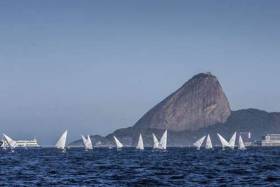Displaying items by tag: Zika
#Rio2016 - Calls from scientists to move this summer's Olympic Games in Rio over the outbreak of the Zika virus have been dismissed by the WHO, as BBC News reports.
As many as 150 international scientists and medical experts put their names to an open letter that claims the latest findings on the virus mean staging the event as-is would be "unethical".
The letter cites the failure of a programme by Brazilian authorities to control mosquitos that carry the virus, which has been linked to serious birth defects, as well as the country's "weakened" healthcare system as the outbreak spreads in South America, as reasons why hosting the games poses "an unnecessary risk" to the thousands of athletes and tourists set to arrive in Brazil two months from now.
However, the WHO – which has declared Zika as a worldwide health emergency – says moving or postponing Rio 2016 would "not significantly alter" the spread of the virus.
It's a stance supported by the head of the US Centers for Disease Control, Dr Tim Frieden, who said there is "no public health reason" to move the games – in the same week that the final on-site review of Olympic venue preparations took place.
Earlier this year it was reported that female athletes preparing for the Rio Olympics were advised to consider the risks involved before travelling to compete.
BBC News has more on the story HERE.
Rio 2016: Zika Poses Risk To Female Sailors
#Rio2016 - Female athletes with places in this summer's Olympics have been left with a tough decision to make due to the outbreak of the Zika virus in Rio and elsewhere in Brazil.
And as Sail-World reports, sailors particularly at risk – as the waters of Guanabara Bay make the perfect breeding grounds for mosquitoes that carry the virus implicated in causing severe birth defects.
The Australian Olympic Committee has already advised its female competitors to consider the risks involved as the Zika situation continues to evolve – and it's expected others will follow in their wake as a number of South and Central American countries are recommending a two-year moratorium on pregnancies.
Coming in the same week as the Notice of Race being issued, it's just the latest health and safety setback to hit the Rio 2016 games after long-time concerns over pollution in the sailing and rowing venues in Brazil's largest city.
Sail-World has more on the story HERE.





























































